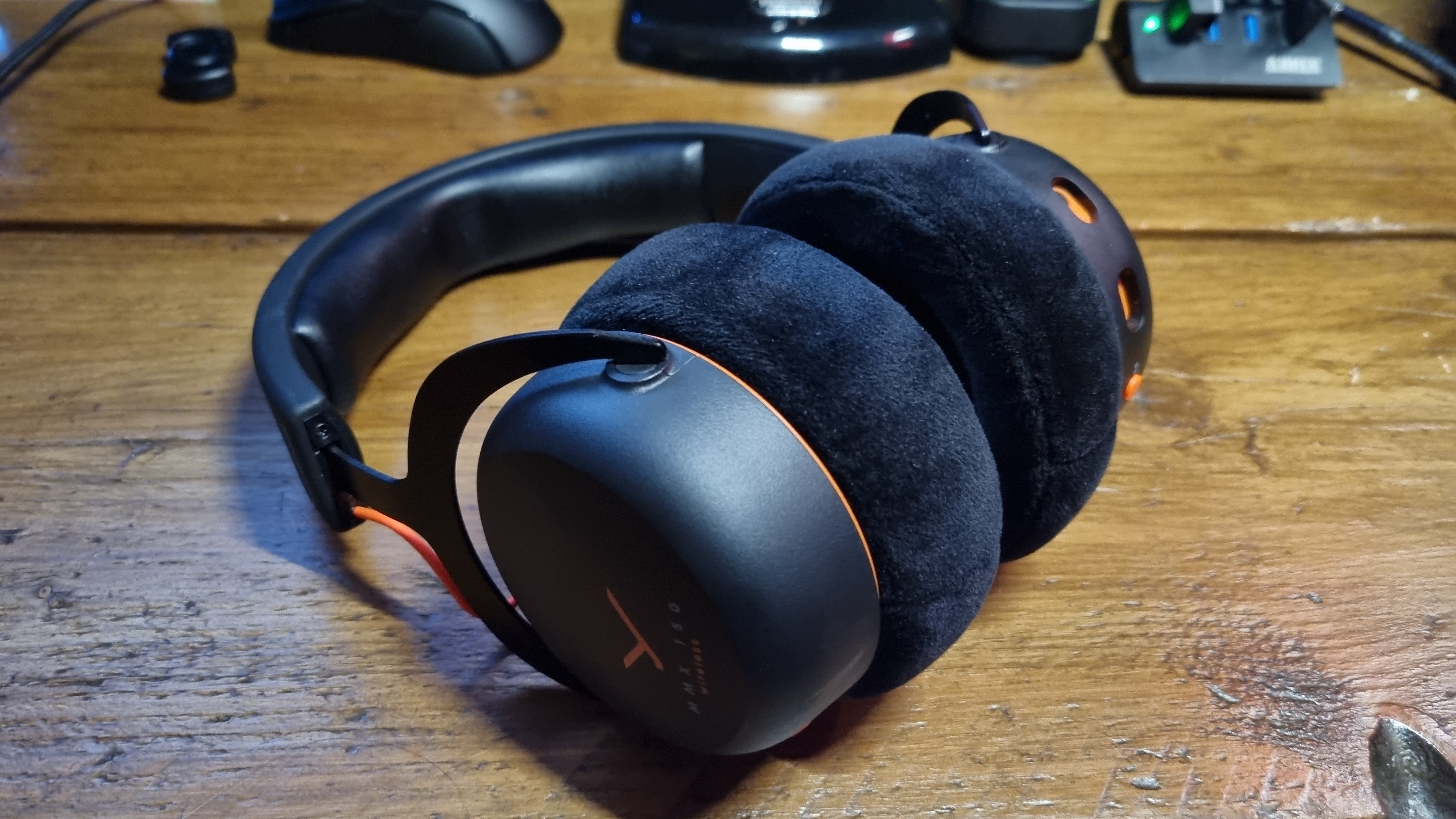Five Cool Raspberry Pi Projects

Raspberry Pi Projects
We all know it, the Raspberry Pi is for all intents and purposes a micro-PC, which houses the CPU, GPU, RAM, and storage together on the same board. Considering that the newest revision of Raspberry Pi is outfitted with an ARM Cortex-A7, 1GB of RAM, and can run Windows 10 (IoT Core), it can easily be integrated into PC-related projects. What have makers and hobbyists done with the popular SBC? Take a look at some of the more unique examples that have surfaced, and how they were accomplished.
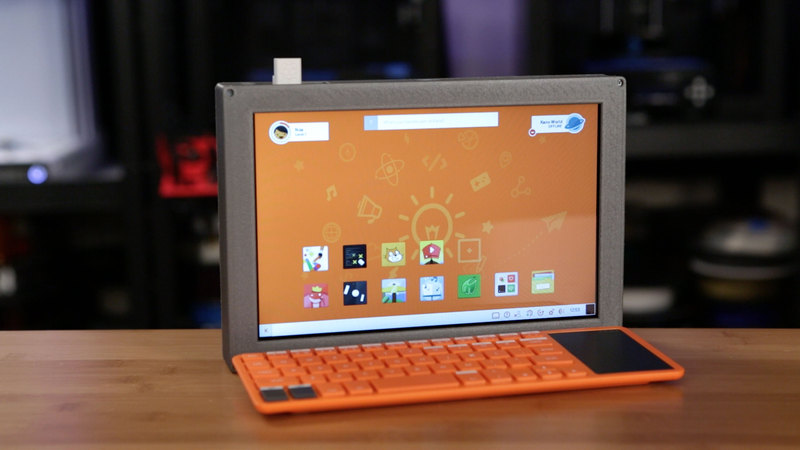
10-inch Raspberry Pi Portable Desktop
This project turns the Raspberry Pi 2 into a desktop PC. So, the project it isn’t paired with a PC but rather is transformed into one, thanks to skilled Adafruit forum users, the Ruiz Brothers. They designed their desktop using the RPi 2 as the brains and combined it with a 10-inch TFT IPS display, a Kano keyboard (Orange), along with a pair of Adafruit PowerBoost 1000 rechargeable hubs with two 6600mAh LiPo batteries. Yep it’s portable. All of which is housed inside of a 3D printed enclosure that can be mounted or carried anywhere it’s needed. Get the full details and more pics here.
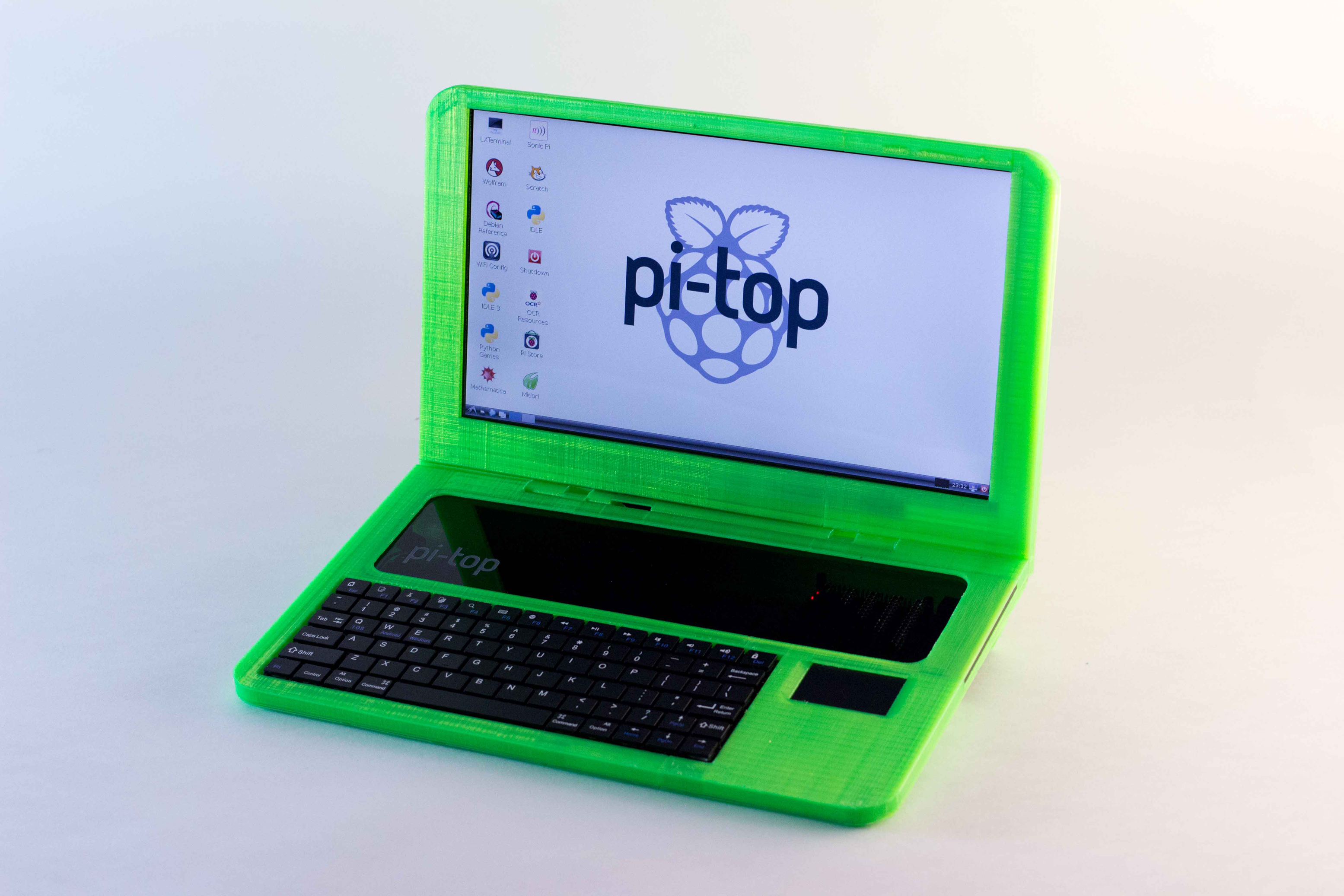
Pi-Top
If the Raspberry Pi can be transformed into a desktop PC then it stands to reason that it can also be made into a laptop, which is what Indigogo user Jesse Lozano successfully accomplished last year. Jesse designed the Pi-Top as a learning tool that focuses on hardware creation, giving users an understanding of electronics and teaching them the basics of PCB creation and how to 3D print various objects. All of which is explained through online and integrated lesson plans found on the Pi-Top website. The $300 kit (available for pre-order here) comes with everything needed to turn the RPi 2 into a functioning laptop, including the RPi 2, a 13.3-inch HD LCD display, base top/bottom with programmable keyboard and track pad, along with a Pi-Top Hub PCB (power management/screen driver). Take a look at the full story of its creation here. http://www.pi-top.com/#/
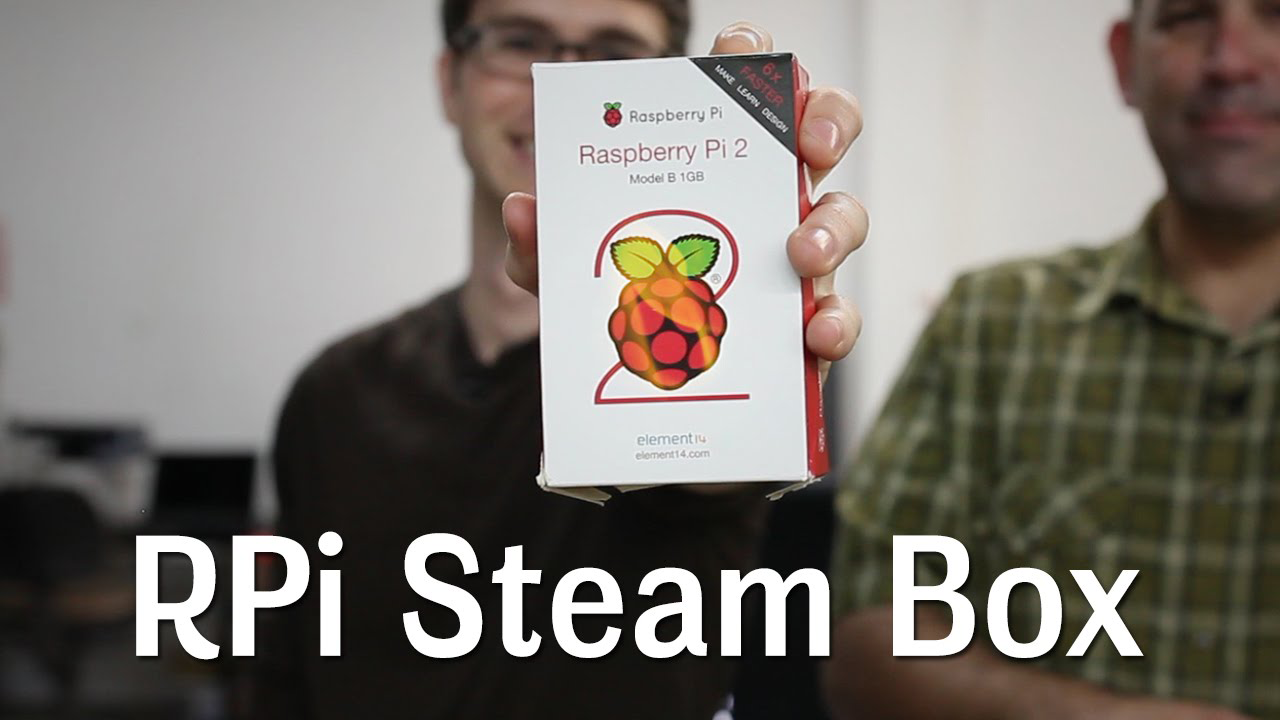
RPi Steam Box
Don’t want to shell out the big bucks for any of the boutique Steam Machines coming this year? Why not build your own using the Raspberry Pi and some other hardware you may have lying around or left over from a previous PC build? That’s what the guys over at Possibly Unsafe have done using the popular SBC and a few other components. The process is pretty straightforward and uses a desktop outfitted with an Nvidia 600-series or higher video card to stream to a Pi-connected TV using Limelight Embedded. They also used Nvidia’s GeForce Experience to identify the Pi as a “Shield device” to stream their library of games over an Ethernet connection to the Pi, however this could be done wirelessly using a Wi-Fi dongle. Look here for instructions, video, and more.
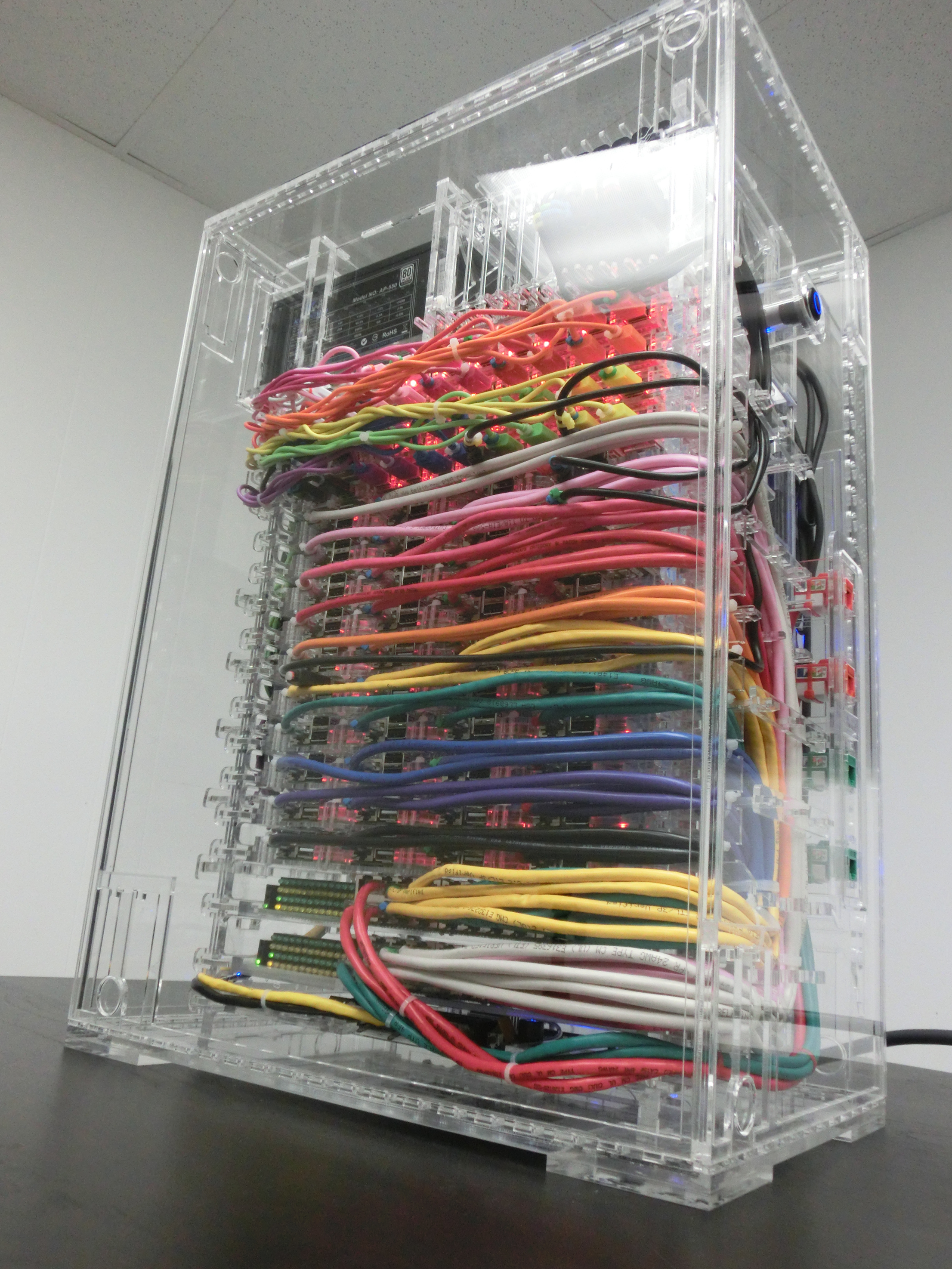
Raspberry Pi Cluster
If one Raspberry Pi can handle simple applications and games, forty should be able to handle intensive tasks that much better. That’s what computer engineer David Guill accomplished with his Raspberry Pi Cluster, which is essentially a small form factor super computer that fits inside a midtower custom-made case. David needed access to a supercomputer in order to test distributed software, and since those are a little hard to come by, he built his own using 40 Raspberry Pi Model As, five Western Digital Blue 1TB HDDs, 40 4GB SD cards, and a Kingwin AP-550 power supply. David also designed and built a custom see-through acrylic enclosure to house the Pis and keep them cool using four 140mm fans mounted on the case’s side. After all was said and done, this super-Pi rig cost David approximately $3,000, which is exponentially less than what traditional SCs cost. For more on the Raspberry Pi Cluster, go here.
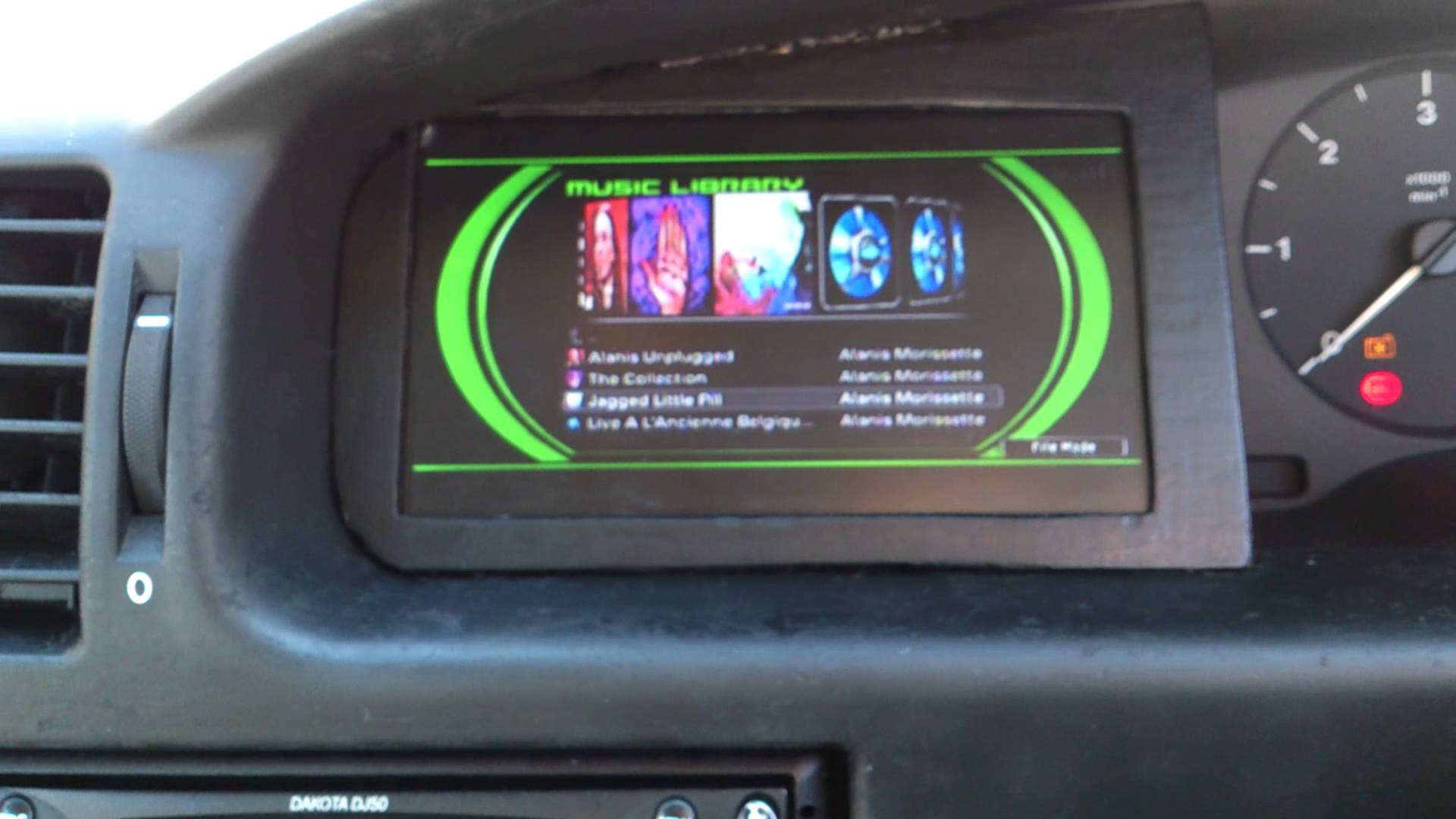
The Car-puter
Don’t have an in-car computer but need one to show pertinent information such as MPG, current travel speed, and other information? Perhaps listen to some music, and even watch some video as well (preferably not while driving)? Then you may want to task it to a Raspberry Pi, which is what Antony Nikrooz did with his Opel Zafira after he wanted to view specific information in real time while driving. Antony was able to tap into the vehicles engine, ABS, steering ECUs (Electronic Control Unit), and onboard diagnostic PIDs using an OBD 2 Bluetooth interface and Strace (debugging utility). After experimenting using several different apps, he was able to gather the information he wanted and display it on the vehicles monitor, which uses an XBMC (Kodi) interface that also allows him to listen to music or watch videos. His full build walkthrough can be found here.
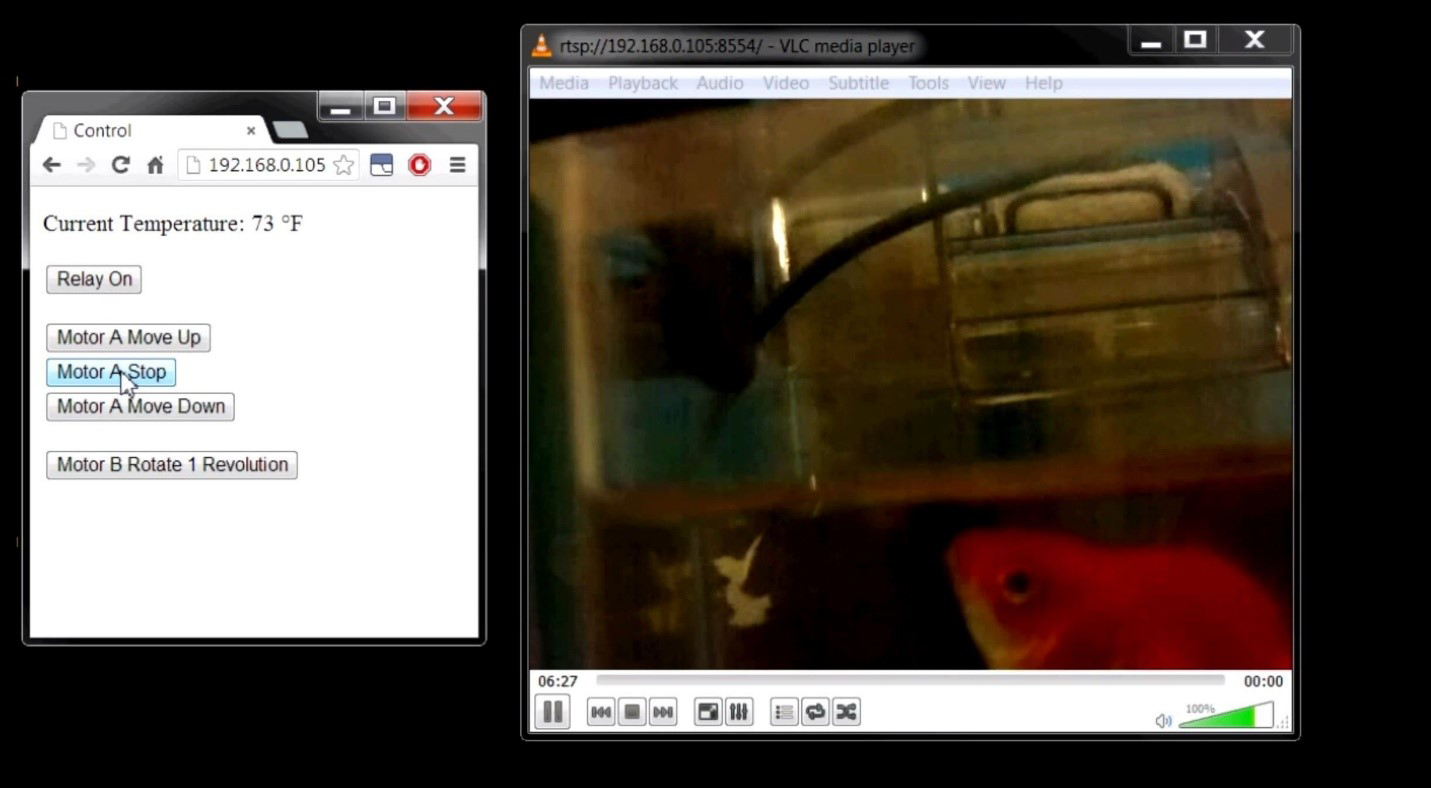
Project Goldie
Last on the list is a personal project, made by the author. It was for use while I was traveling, and didn’t have anyone to take care of my pet goldfish, Goldie. For this project I used the RPi model B and partnered it with the Pi Camera Module in order to see Goldie in real time just by accessing my laptop and logging in to VLC. The camera itself was affixed to a belt-driven moving platform, which allowed me to view Goldie over the length of the tank while a pair of stepper motors with an Arduino Motor Shield allowed me to manually feed her using a custom-built drum feeder—one motor for the drum rotation and the other to move the feeder in two directions. Thanks to element14 for helping me out, and helping me have peace of mind every time I travel. Go here to see a complete build and walkthrough, plus my first animated video starring Goldie.
Keep up to date with the most important stories and the best deals, as picked by the PC Gamer team.
You are now subscribed
Your newsletter sign-up was successful
Want to add more newsletters?

Every Friday
GamesRadar+
Your weekly update on everything you could ever want to know about the games you already love, games we know you're going to love in the near future, and tales from the communities that surround them.

Every Thursday
GTA 6 O'clock
Our special GTA 6 newsletter, with breaking news, insider info, and rumor analysis from the award-winning GTA 6 O'clock experts.

Every Friday
Knowledge
From the creators of Edge: A weekly videogame industry newsletter with analysis from expert writers, guidance from professionals, and insight into what's on the horizon.

Every Thursday
The Setup
Hardware nerds unite, sign up to our free tech newsletter for a weekly digest of the hottest new tech, the latest gadgets on the test bench, and much more.

Every Wednesday
Switch 2 Spotlight
Sign up to our new Switch 2 newsletter, where we bring you the latest talking points on Nintendo's new console each week, bring you up to date on the news, and recommend what games to play.

Every Saturday
The Watchlist
Subscribe for a weekly digest of the movie and TV news that matters, direct to your inbox. From first-look trailers, interviews, reviews and explainers, we've got you covered.

Once a month
SFX
Get sneak previews, exclusive competitions and details of special events each month!

